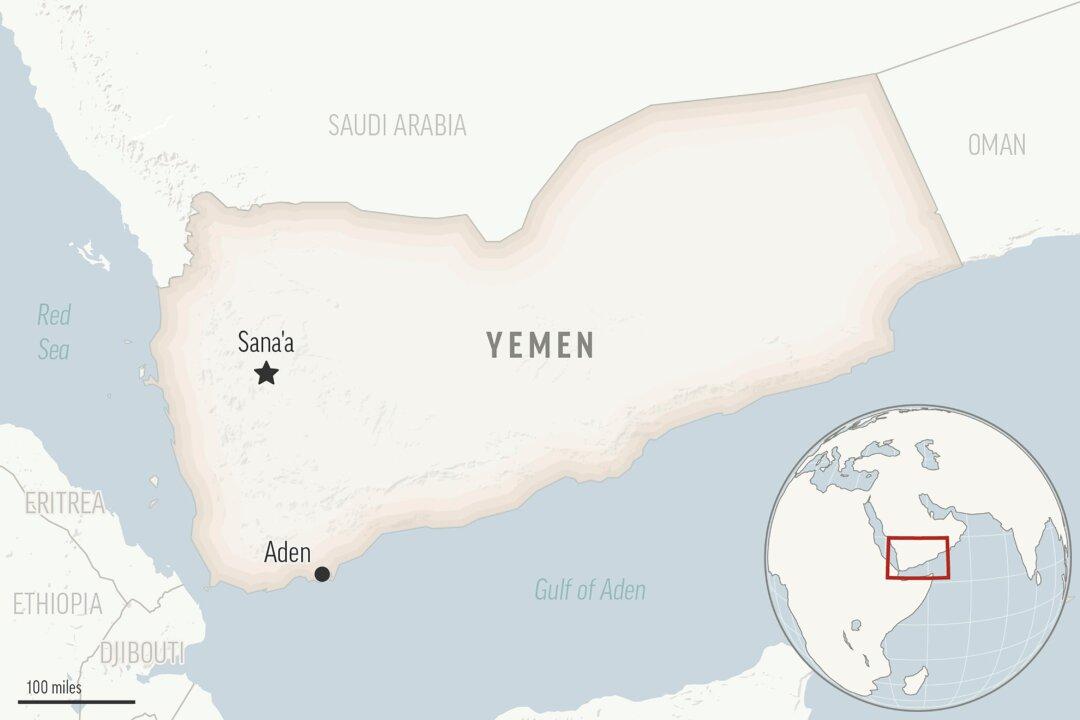The U.S. Central Command (CENTCOM) reported another attack by Houthi terrorists on a vessel in the Gulf of Aden on Feb. 24. This time, the terrorists launched an anti-ship ballistic missile at a U.S.-flagged oil tanker.
The missile, which was fired at the U.S.-owned MV Torm Thor, missed the ship and landed in the water. No damage or injuries were reported as a result of the attack, CENTCOM reported on social media platform X.




